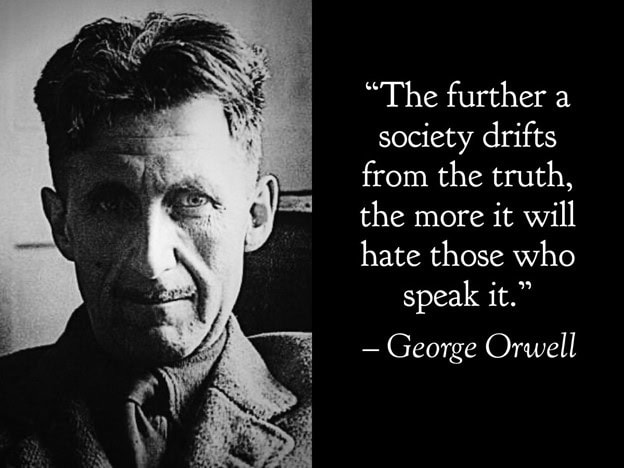The Alliance of Censorship and Propaganda
NOTE: This information is presented in a lecture to the University of Wisconsin journalism students, hosted by Nikki Rose, Director of Interactive Educational Programs in Crete, Greece. Censorship and propaganda are intrinsically linked as tools of information control used to shape public perception and influence societal attitudes. Censorship involves the suppression or restriction of access to information, often to prevent dissenting or opposing viewpoints from reaching the public. This creates a controlled information environment where only select narratives are allowed to prevail. Propaganda, on the other hand, actively disseminates specific information, often biased or misleading, to promote a particular political agenda or ideology.
When used together, censorship eliminates counter-narratives and critical voices, allowing propaganda to dominate the discourse unchallenged. This synergy between censorship and propaganda can manipulate public opinion, suppress democratic discourse, and maintain the power structures of those implementing these tactics. By restricting access to diverse sources of information and promoting one-sided messages, governments and organizations can effectively control and direct public perception and behavior.
The Impact of Censorship and Propaganda on our Food Supply
Censorship and propaganda have profoundly influenced the reporting on genetically modified organisms (GMOs) and their associated pesticides, skewing public perception and debate. Through censorship, critical voices and independent research challenging the safety and environmental impact of GMOs and pesticides have been suppressed, often due to the powerful influence and financial reach of agrochemical corporations and their lobbying efforts. This suppression includes the silencing of scientists, withholding of adverse study results, and restricting media coverage of negative findings.
Concurrently, propaganda has played a pivotal role in shaping public opinion by disseminating positive narratives about GMOs and pesticides, emphasizing their benefits for agricultural efficiency and food security, while downplaying or dismissing health and environmental concerns.
Corporate-funded studies and promotional campaigns often flood media channels, creating an imbalance that favors industry perspectives. This combination of censorship and propaganda not only undermines scientific discourse and journalistic integrity, but also prevents consumers and policymakers from making fully informed decisions based on a comprehensive understanding of the potential risks and benefits of GMOs and their associated pesticides. The broad reach of industry has extended its influence into academic settings shaping not only education, but directing intellectual pursuits that favor corporations. Industry-sponsored research statistically is biased in favor of their own agenda.[1]
The Impact of Censorship and Propaganda on Physicians
Censorship and propaganda have significantly hindered physicians’ abilities to report and address negative health outcomes associated with the consumption of GMOs and their associated pesticides. Through censorship, medical professionals and researchers who identify potential health risks linked to GMOs and pesticide exposure often face suppression of their findings, professional discrediting, and even legal challenges, making it difficult to publish adverse results in reputable journals or speak openly about our concerns. This suppression is exacerbated by the pervasive influence of agrochemical companies, which fund research and exert considerable control over scientific discourse and public health narratives.
Simultaneously, propaganda campaigns by these corporations actively promote the safety and benefits of GMOs and pesticides, marginalizing and dismissing contrary evidence as unfounded or pseudoscientific. Such efforts include strategic misinformation, funding of favorable studies, and extensive public relations campaigns. This dual approach not only obscures the true extent of potential health risks from public view, but also undermines the credibility and autonomy of medical professionals attempting to inform and protect our patients, ultimately compromising public health and safety.
Dr. Marcia Angell, a respected physician, bioethics expert, and editor, left her position as Editor-in-Chief of the prestigious New England Journal of Medicine (NEJM) in 2000, citing concerns about the growing influence of pharmaceutical companies on medical research and publication. During her tenure, Dr. Angell became increasingly alarmed by the pervasive conflicts of interest between drug manufacturers and the medical community. She argued that these financial ties compromised the integrity of scientific research, leading to biased results and undermining the trustworthiness of medical literature.
Despite her efforts to implement stricter disclosure policies and maintain the journal’s objectivity, she faced significant resistance from industry stakeholders. Her departure was a powerful statement against the encroachment of commercial interests in medical science, highlighting the urgent need for greater transparency and independence in medical research and publishing. Dr. Angell’s outspoken advocacy continues to influence debates on medical ethics and the regulation of industry influence in healthcare.[2]
Dr. Andrew Wakefield, a British gastroenterologist, became a controversial figure after publishing a 1998 study in The Lancet that demonstrated a link between the MMR (measles, mumps, and rubella) vaccine and autism. Despite the call for further research, Wakefield faced an intense backlash from the medical establishment and pharmaceutical industry. His work was quickly labeled as fraudulent, and he was accused of ethical violations. The General Medical Council (GMC) revoked his medical license, and The Lancet retracted his study.[3]
Critics argue that Wakefield was a victim of censorship and propaganda, targeted by powerful entities that sought to silence dissenting voices and protect vaccine mandates. They claim that the media and scientific community engaged in character assassination, overshadowing his initial call for more research into vaccine safety. Supporters believe that Wakefield’s experience underscores the need for open scientific inquiry and the protection of physicians who challenge prevailing medical practices, emphasizing the importance of addressing pharmaceuticals safety concerns transparently and without bias. His second movie has just been released, Protocol 7; a drama featuring a whistleblower story regarding the MMR. [4]
The Impact of Censorship and Propaganda on Researchers
Dr. Ignacio Chapela and Dr. Tyrone Hayes, both esteemed scientists from UC Berkeley, have become emblematic cases of how censorship and propaganda can be wielded to suppress critical scientific findings and protect corporate interests.
Dr. Chapela, whose research revealed contamination of native Mexican maize by genetically modified (GM) corn, faced intense backlash, including attempts to discredit his work and threats to his academic position. Similarly, Dr. Hayes’ studies on the endocrine-disrupting effects of the herbicide atrazine on frogs drew the ire of its manufacturer, Syngenta, which engaged in an extensive campaign to undermine his research and reputation. Both scientists encountered significant obstacles in publishing their findings, experienced professional isolation, and were subjected to aggressive public relations efforts aimed at discrediting their work.
Dr. Arpad Pusztai, a renowned scientist in the field of biochemistry and nutrition, played a pivotal role in the documentary film Scientists Under Attack. As the first scientist to research GMOs in rats, Dr. Pusztai’s groundbreaking findings of harm brought attention to the ominous health risks associated with genetically engineered foods. Shortly after the disclosure of his findings, he was terminated from his long-held position at the Rowett Institute in Scotland. Watch the movie free of charge here.
His unwavering dedication to scientific integrity still continues to inspire critical examination and public awareness of the impacts of genetic engineering on human health and the environment even after his death, despite the inundation of negative propaganda on internet searches regarding his research findings.
French researcher, Dr. Gilles-Eric Séralini, a prominent molecular biologist, faced severe backlash from the biotechnology industry following the publication of his stunning research on genetically modified organisms (GMOs) and their associated herbicide, glyphosate. His 2012 study showed significant health risks including tumor development in rats fed GMOs/glyphosate and drew intense scrutiny and criticism. (Note: You do not consume a GMO without its associated pesticide, such as Roundup Ready® crops.)
Major agrochemical companies and industry-affiliated scientists launched a concerted campaign to discredit his findings, challenging the study’s methodology and peer review process. This led to the temporary retraction of his paper by the journal Food and Chemical Toxicology, although it was later republished in another journal. The relentless attacks not only damaged Dr. Séralini’s professional reputation, but also had significant personal repercussions, impacting his health and well-being. Despite these assaults, he continued to advocate for transparency and rigorous long-term research on GMOs and pesticides, highlighting the challenges faced by scientists whose work threatens powerful industry interests.
These experiences highlight the broader issue of how powerful corporate entities can manipulate scientific discourse through censorship and propaganda, stifling important research that raises legitimate concerns about environmental and public health risks. The cases of Dr. Chapela, Dr. Hayes, Dr. Pusztai, and Dr. Séralini underscore the challenges faced by scientists who confront industry giants, revealing the profound impact such tactics can have on scientific integrity and public awareness.
The Impact of Censorship and Propaganda on Medical Education
The impact of censorship and propaganda on medical education has significantly shifted the focus away from nutrition and holistic health toward a Pharma-driven narrative. This transformation has been orchestrated through the strategic influence of pharmaceutical companies, which heavily fund medical research, educational programs, and continuing education for healthcare professionals. This process has been occurring since the initiation of the Flexner Report in 1910; a Rockefeller-inspired movement to shift medical education away from holistic health to one built on petroleum-based pharmaceuticals.
As a result of corporate control and influence, medical curricula are disproportionately and grossly centered on pharmacological treatments, often at the expense of comprehensive education in nutrition, lifestyle medicine, and holistic approaches to health.
This bias is reinforced by the suppression of research and dialogue that emphasize the benefits of dietary and holistic interventions, coupled with aggressive promotional campaigns that highlight pharmaceutical solutions as the primary, and often sole, approach to disease management. This played out during the Covid Chronicles in real time.
Consequently, medical students and practitioners are woefully underexposed to the critical role that nutrition and holistic health practices play in preventing and treating chronic diseases. This shift not only undermines the development of well-rounded, integrative healthcare professionals, but also perpetuates a healthcare system that prioritizes pharmaceutical interventions over regenerative and preventative health strategies, ultimately impacting patient outcomes and public health.
The Impact of Censorship and Propaganda on Activists
Jeffrey Smith, a prominent anti-GMO activist, author, and film producer has been a vocal critic of genetically modified organisms and their potential risks to health and the environment. His work, including the highly acclaimed book, “Seeds of Deception,” and award-winning movies such as “Genetic Roulette,” and “Secret Ingredients” has drawn significant attention and support from those concerned about food safety and environmental sustainability.
However, his activism has also made him a target of agribusiness giants and industry-aligned scientists who seek to discredit his findings and undermine his influence. These entities have employed various strategies to belittle his credibility, including character attacks, dismissing his website, Institute for Responsible Technology and research as pseudoscience, and portraying him as fearmongering. Agribusiness-funded organizations and PR firms have actively worked to marginalize his voice, attempting to sway public opinion and policy in favor of GMO adoption.
Despite these efforts, Jeffrey Smith remains a steadfast advocate and global influencer for greater transparency, rigorous safety testing, and informed consumer choice regarding GMOs, continuing to challenge the dominance of powerful agribusiness interests.
The Impact of Censorship and Propaganda on Journalists and the Media
Censorship and propaganda significantly compromise the integrity and efficacy of journalistic reporting and the media, undermining the role of the press in a democratic society. Censorship restricts access to critical information, preventing journalists from presenting a full and accurate picture of events and issues. This suppression can stem from governmental control, corporate influence, or self-censorship due to fear of repercussions. Propaganda further distorts reporting by flooding the media landscape with biased or false information designed to shape public perception and advance specific agendas.
Journalists operating in such environments face immense challenges in distinguishing fact from fiction and in providing balanced coverage. The dual forces of censorship and propaganda not only stifle investigative journalism, but also erode public trust in the media, as audiences become increasingly skeptical of the information presented to them. Again, this phenomenon played out in real time during the Covid era as public sentiment descended to an all-time low regarding faith in media. Consequently, the essential function of journalism—to inform the public, hold power to account, and foster an informed citizenry—is severely compromised, leading to a less transparent and less accountable society.
The Impact of AI-Enabled Censorship
AI-enabled censorship and propaganda represent a profound shift in the landscape of information control and dissemination. Leveraging advanced algorithms and machine learning techniques, these technologies can filter, prioritize, and even fabricate content with unprecedented precision and scale. Governments and corporations utilize AI to suppress dissent, manipulate public opinion, and reinforce specific narratives, thereby eroding democratic principles and stifling free speech.
The sophisticated nature of AI systems allows for the subtle and pervasive shaping of perceptions, often without the awareness of those being influenced. This can lead to a homogenization of viewpoints and a reduction in the diversity of thought, ultimately undermining informed public discourse and critical thinking. Presently, the regulation of AI exists in a complex interplay between governments, industry, and academic institutions. This ominous interplay reveals that the fox is guarding the hen house.
The potential for AI to amplify bias and misinformation necessitates stringent ethical guidelines and robust oversight mechanisms to safeguard the integrity of information ecosystems and protect the foundational rights of individuals in a digital society.
How Journalists and the Media Can Overcome Censorship and Propaganda
Journalists and the media can overcome censorship and propaganda by employing a combination of strategic practices to ensure the integrity and dissemination of their work:
First: Build and utilize a robust network of confidential sources and whistleblowers that can provide critical information that might otherwise be inaccessible.
Second: Collaborate with international media organizations and consortia to amplify suppressed stories and provide a broader platform for dissemination, thus reducing the impact of local censorship.
Third: Use encrypted communication tools and secure digital platforms to protect sources and data from surveillance and interception.
Fourth: Social media and independent online platforms can work to bypass traditional gatekeepers and reach a wider audience directly. Fact-checking and verification processes must be rigorous to counteract propaganda, and engaging in continuous professional development on digital literacy and cyber-security is essential.
Fifth: Foster public support through transparency about the challenges faced and the importance of press freedom in order to galvanize community backing and financial support through crowdfunding and donations, ensuring that journalistic resilience against efforts to censor and manipulate the narrative.
By adopting these measures and thinking outside-of-the-box, journalists and the media can enhance their capacity to report truthfully and uphold their crucial role in society.
Challenge the status quo:

How Small Non-Profit Organization Can Overcome Censorship and Propaganda
Small non-profits dedicated to truth and integrity in organic regenerative agriculture in order to maintain a robust/nutritious/chemical-free food supply, like GMWatch, GMOFreeUSA, MomsAcrossAmerica, and my own organization, GMOScience, all play a crucial role in overcoming censorship and propaganda perpetuated by powerful agribusiness interests. Many organizations such as ours often operate with limited resources, but make significant impacts through grassroots efforts, public education campaigns, and advocacy work. For example, by utilizing social media, community outreach, and partnerships with like-minded groups, we disseminate factual information and raise awareness about the benefits of organic and regenerative farming practices, and hence facilitate turning the tide away from the corruption of our food supply.
Our types of small Mom and Pop non-profits also support independent research and provide platforms for scientists and farmers whose voices might otherwise be suppressed. We counteract misinformation by highlighting success stories, promoting transparency in agricultural practices, and advocate for policy changes that support sustainable and ethical farming. Goals and directives are clear-cut: Offer untethered voices outside of corporate-dictated narratives:
Our commitment to transparency and community engagement helps build a more informed public, capable of resisting corporate propaganda and making choices that favor environmental health and sustainable food systems.
Through persistent advocacy and education, there are many organizations that challenge the dominance of profit-driven narratives or hidden agendas and empower individuals and communities to embrace practices that contribute to long-term ecological and human well-being.

References:
[1]https://www.ncbi.nlm.nih.gov/pmc/articles/PMC6187765/
[2]https://www.amazon.com/Truth-About-Drug-Companies-Deceive/dp/0375760946



